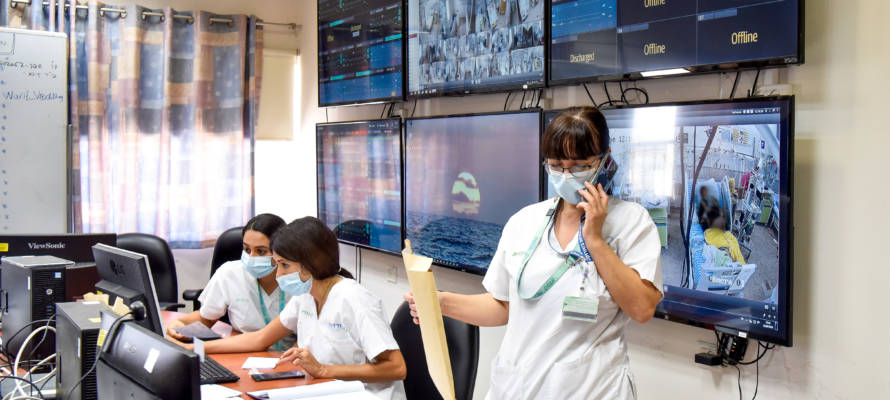Israeli hospital, aerospace firm team up to convert defense tech into medical solutions.
By Yaakov Lappin, JNS.org
The Soroka University Medical Center in Beersheba and Israel Aerospace Industries (IAI) have set up a joint innovation center that will take defense technologies and convert them into new medical technologies.
IAI’s subsidiary, Elta, said it will work with the Soroka Center to create a technological greenhouse for growing new ideas for medical equipment. The forum is linking hospital doctors with IAI engineers for jointly examining technologies that can act as breakthrough new solutions. A joint steering committee will choose the final projects for further development.
The idea has its roots in the height of the pandemic, when IAI and the Israeli Defense Ministry set up a production line for mechanical ventilators, Israel Lupa, executive vice president at Elta, told JNS.
During this time, IAI-Elta developed multiple technologies to assist the medical system, he said, including the Cockpit control system that allows for data on ventilated COVID-19 patients to be presented in a centralized manner, and to receive a full situation picture of the patient’s condition. IAI’s artificial intelligence (AI) capabilities were used to issue alerts on deterioration in the conditions of patients, enabling medical staff to their attention and resources to patients on time.
“This started during the pandemic. As a company, we decided to help hospitals where we could, to reduce the stress on the medical system was under,” Lupa recalled. “We found ourselves involved in many hospitals, from north to south, trying to help each one in line with their requirements.”
“In this context, one of the hospitals we worked with was the Soroka Center,” said Lupa. “At first, we helped it run isolation wards using a software bot that can manage a dialogue with the isolated person…This helped alleviate the load on the system. Many at that time were hospitalized in isolation, and they had many questions for medical staff. We deployed a relatively simple app to take the pressure off the personnel, together with Microsoft. It offered automatic answers to those questions.”
Next came the Cockpit coronavirus management system, which enabled medical staff to monitor patients from outside of their treatment rooms. This meant the doctors and nurses did not have to put on full protective gear and sterilize themselves so many times each day.
“The next stage was adding AI to identify situations of patients, and to sound alerts when attention was needed to patients,” Lupa said.
Identifying anomalies in data patterns is an example of a technology that can make the leap from the defense sector to the medical world.
During those tough months, IAI forged a close connection with hospital doctors, and both sides realized that the potential for cooperation could go much further, according to Lupa.
“We have many technologies that have potential for medical applications. But we don’t really understand the medical field, and this is where the connection with hospitals and doctors comes in,” he said.
Hospital department managers and IAI personnel both identified ways for IAI’s AI, big data analysis, signals technology and sensor processing to work in the medical world.
“An ultrasound is not different to sonars and radars. Hence, our technology is highly suitable for analyzing these signals. There’s also a need to provide cyber protection to the equipment,” said Lupa. “We said, let’s see how we can address their needs with our technology.”
Now, as the cooperation moves forward, tech and medical teams meet regularly, and IAI personnel are learning about hospital departments, their capabilities and their needs. Once a need is identified, a viability analysis is conducted, said Lupa, which can lead to a product. The product concept will be sent start-ups, with the help of the hospitals.
Initial meetings have led to many potential ideas, Lupa said, adding that an initial brainstorming session led to 20 possible products.
“We will filter them out until we have two, three big ideas for this stage,” he said.
